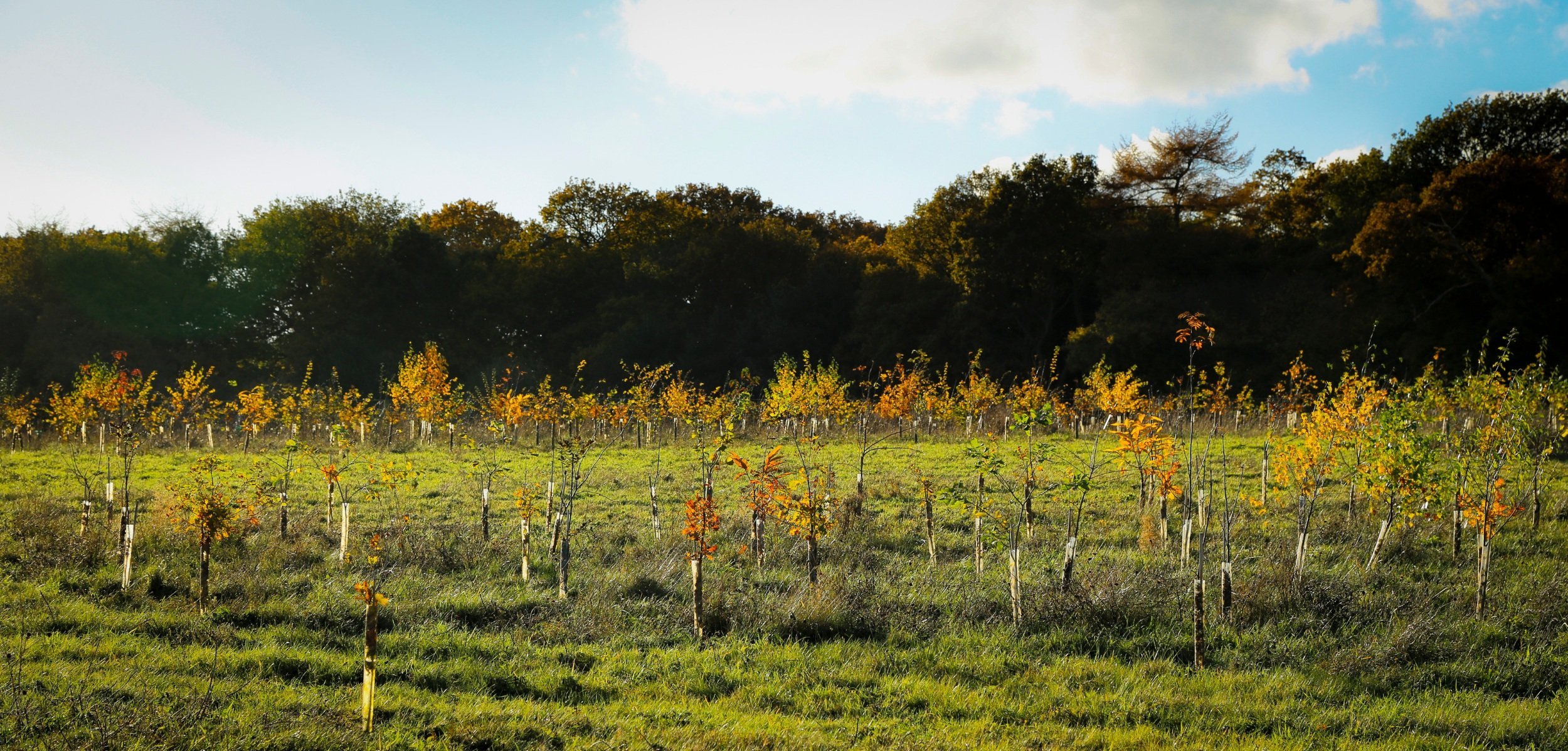
Why Trees
Trees benefit human health and the health of the planet. Learn more about why we’re so passionate about trees.
Tree Spotlight
Click the images below to learn more about out native tree species.
Want to suggest a native species for an upcoming feature? Contact us.
This is an exciting week for trees. September 20th, on the beautiful grounds of Sunnybrook Hospital in Toronto, will mark the start of the planting of over 600 trees in honour of Sunnybrook’s healthcare providers and in memory of those who lost their lives due to Covid-19. On National Tree Day, September 21st, we’ll be planting 100 trees at Pierre Rocque Park and Beechwood Cemetery in Ottawa, in honour of those who helped the local community through the pandemic and lost their lives to Covid-19.
September 18th-24th is National Forest Week. This is the perfect week to show off the tree-hugger in you, and it’s a great time to plant a tree, period.
There is a massive river enhancement project underway in the City of Toronto that has revealed new plants – what appear to be long lost wetland plants growing spontaneously from 100-year-old seeds. Crews noticed them because they are unlike anything else growing in the area.
Trees can lower air temperature in city neighborhoods 10 lifesaving degrees, scientists have found. They also reduce electricity demand for air conditioning, not only sparing money and emissions, but helping avoid potentially catastrophic power failures during heat waves.
Employees who have a view of nature from their desk experience a myriad of benefits. They 1) find their job more challenging, 2) are less frustrated about tasks, 3) feel greater enthusiasm for the job, 4) report feelings of higher life satisfaction and 5) report better overall health than their coworkers without a view. Additionally, desk workers without a view of nature claim 23% more incidences of illness over a six-month period.
"Grasslands are very important carbon sinks ... and the White Lake Basin Biodiversity Ranch is a key grassland landscape in the southern interior of British Columbia," said Jasper Lament, CEO of the Nature Trust of B.C.
A new study found that converting agricultural land to forest would boost summer rains by 7.6% on average.
I was worried that afternoon about an ill family member, and as I stared at her gnarled trunk, I thought of all this tree has survived. I watched the light filter through her canopy and listened to a squirrel chatter on a branch. And I felt better.
For generations, the core mission of the National Park Service has been absolute conservation. Instructions to preserve iconic landscapes unchanged are inscribed in the founding documents of many parks. But what happens when climate change makes that impossible?
A 15-acre swath of Hydro Ottawa land will soon be a buzzing metropolis of bees, birds and butterflies as the Rideau Valley Conservation Authority (RVCA) helps plant one of the largest pollinator meadows in Eastern Ontario.
Human-caused climate change was putting humanity’s future in peril, she said in recorded remarks. Survival would depend on Earth’s original carbon-capture machines, the most effective tools for getting rid of greenhouse gases.
When all of Belgium tunes in to watch the Tour of Flanders bicycle race, Pieter De Frenne watches the trees.
They’re only on screen for as long as it takes the peloton to whiz by, but it’s enough for De Frenne to recognize them, log them, and gather a tiny insight into how the planet is changing. That’s because De Frenne is a pro cyclist in his dreams and a pro botanist in real life. And along with a team from the University of Ghent, he figured out that somewhere in Belgium’s annual festival of sore legs, cobbled hills and heady beers, there was climate science to be done.
Most bird lovers notice and appreciate trees. Trees are often what we see when looking for the source of that nearby hooting, chirping, tweeting, or twittering. Expert birders may even know which trees are the preferred food source or habitat for our feathered friends. And with increasing concerns about how we will adapt to a changing climate, trees are gaining more attention for the many ecosystem services they provide, particularly in urban environments.
In the fall of 2017, The Nature Conservancy and partners launched the Green Heart Project to examine the link between neighborhood greenery and holistic human health.
News & Information
For specific tree related inquiries, please check out our resources page before reaching out to one of our educated staff members. Thank you!































